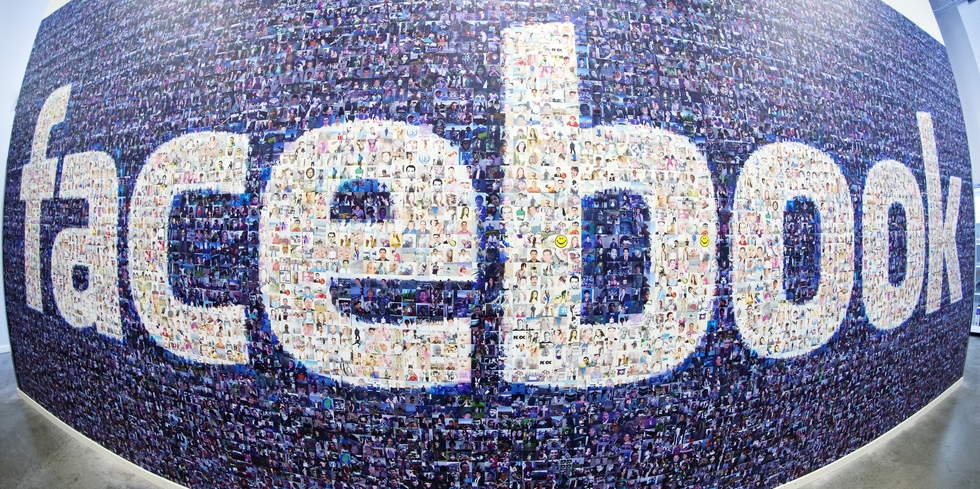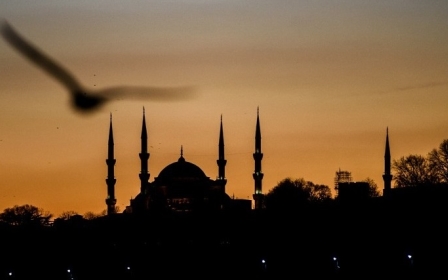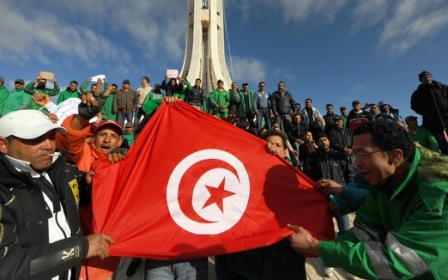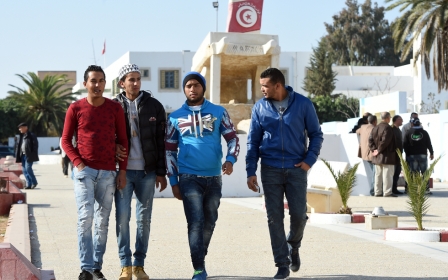Can Facebook and Twitter inspire another Arab Spring?

Events leading to the historic Arab uprisings were greatly linked to the widespread use of social media that at a certain point convinced many Arab uprising activists, Wael Ghonim for example, to call it Revolution 2.0.
Five years on, the uprisings have receded and authoritarian control resurfaced, state-sponsored arbitrary arrest, torture and repression is at pre-uprising level. Consequently the role of social media and its ability to create a similar euphoria of revolution and regime change looks extremely difficult. The social media outlook, however, is more optimist as the numbers of social media users have rocketed and social media marketing has become more promising across the entire Middle East.
Much to the surprise of many, it is kingdoms and emirates, not republics, where social media penetration is at a record high. Yet a repetition of the historic social media-led campaigns against the governments of these states looks quite difficult.
Many believe that the era of cyberoptimism is over - or that it never had happened. Cybersceptics accuse them of greatly relying on the power of technology and its perceived invincibility. The fact remains unchanged that the post-industrial society - cyberoptimists call it the "Information Society" - has not changed the political economy of inequality, injustice and authoritarianism.
Orkut was perhaps the first, most popular social media platform used by Arab language social media users, but it could hardly claim to have created the kind of diverse political, cultural and entertainment content seen on Facebook and Twitter. As a result, authoritarian regimes had little reason to fear Orkut-inspired protests.
In June 2010, six months before anti-Hosni Mubarak protests erupted, a Facebook page called "Kulluna Khaled Said" (KKS) was created by some anonymous admins. Though it was not the first of its kind, it was the first for having become a source of popular solidarity against police-sponsored torture of Egyptian youth. The KKS campaign page had never imagined that it would be used to call for regime change.
At the beginning, in June 2010, its main demand was only for action against police personnel responsible for the death of Khaled Said, a 22-year-old Alexandrian. Even after the Tunisian protests started in December 2010, KKS’s main demand was the resignation of the home minister Habib al-Adly, a modest price any dictator would be happy to pay had he been able to foresee his imminent fall from grace in the weeks that followed.
Soon after the Tunisian president fled to Saudi Arabia, KKS admins asked its followers "why can’t Egyptians also do that?" The slogan "al Sha’b ureed Isqat al Nizam" spread like fire, public opinion was fired up and KKS admins announced a series of protests.
On 11 February 2011, more than a million Egyptians were in Tahrir Square when Hosni Mubarak announced his unexpected resignation. A mere 15,000 users liked KKS posts when it announced “Congratulations!! Criminal (Hosni Mubarak) has left the palace.”
Can it happen again? Theoretically, it should have happened many times if the volume of social media use and content generation is taken as a benchmark of political activism. Actually it did happen when Tamarod launched a similar campaign against Egypt’s first elected president Mohamed Morsi, ultimately reversing the democratic change and replacing the entire narrative of the 25 January revolution with the 30 June 2013 military coup.
A consensual acceptance of hegemony, as Antonio Gramsci would have said, has confused many including the most revolutionary left intellectuals who conveniently chose to support Abdel Fattah al-Sisi's coup.
Arena of struggle
Social media provides a space which is necessarily dependent on the commercial interests of internet providers and the legal and security interests of the states. An anti-Morsi or pro-Morsi public opinion in an independent public sphere is quite a normal thing but the social media space can help one or the other side to create a different picture. Social media is also claimed by territorial states whose sovereignty over its land, air and sea is internationally recognised.
But the internet giants contest this claim and advocate a multi-stakeholder approach which gives an equal right to the state actors, market forces, professionals and civil society.
In recent years, social media companies have made this space more business and government friendly, crowding it with commercial and sponsored posts. It has become an arena of struggle for market share, the stability of regimes and people’s rights.
This struggle is defining the emerging relationship between social media and political change, occasionally in favour of people and mostly in favour of the regimes or businesses. During certain politically sensitive events, it is never known who actually switched off the social media services - Facebook, Vodafone as in case of Egypt, or the government. The right answer perhaps is that it suits all of them.
In 2013, Facebook rolled out new commercial interfaces in which "Sponsored Posts", paid likes and other business promotion applications were introduced. By the end of 2015, Facebook had accumulated $4.3bn from its ad revenues while Twitter received $513m. Nearly 40 million small businesses and all big business have joined Facebook.
Governments take to social media
Governments have become very active not only in complaining or blocking sensitive content, but also in producing counter narratives against opposition parties. GCC states for example, with the highest penetration of ICT and social media accessibility, have no prospect of being threatened by an Egyptian-style protest.
Governments in GCC countries, Iran, Egypt, Turkey and Russia are equally active in creating their own narratives questioning the opposition’s credibility and strengthening government support. Just recently the Saudi deputy crown prince held a meeting with Facebook CEO Marc Zuckerberg to find ways for Facebook to contribute to Saudi Arabia’s ambitious economic transformation.
Similarly there is a sharp rise in social media-related laws which allow the authorities to take legal action against social media content and its producers.
In 2012, the Saudi Shura council advised the king to prosecute those who violate the internet law. A draft cyber security law is being discussed by the Egyptian parliament which will make social media vulnerable to heavy government surveillance and punishments for alleged violations.
Iran’s Supreme Council of Cyberspace has introduced new regulations which will stipulate the storage of messaging data inside Iran, risking the freedom of social media activists. Iran is known for its effective filtering software that has made Facebook and Twitter highly vulnerable to censorship and surveillance. Most Iranians prefer to use Telegram to avoid surveillance and filtration. New regulations will now weaken Telegram also.
With regard to privacy and data protection rights, Arab netizens are not as protected as their European and American counterparts. In October 2015 the European Court of Justice invalidated the Safe Harbour law for violating the privacy rights of European citizens. The verdict forced the US and EU to replace it with a new framework: the EU-US Privacy Shield which addresses the concerns raised by the European Court of Justice.
What about the privacy rights of social media users of other countries? Can the Saudi or Egyptian government guarantee similar rights for their citizens? Arab netizens know best who to trust more, Facebook or their governments.
What about Facebook and other social media’s manipulation of their data and removal of content or a user? In the last few years, social media activists in Syria have started complaining, particularly in the case of Facebook, that their pages are being blocked or removed by Facebook arbitrarily, without giving them any warning or an opportunity to remove the objectionable content.
It appears that Facebook users are gradually being pushed to the losing side as social media space becomes increasingly commercialised and squeezed by authoritarian regimes. The possibility of another Revolution 2.0 seems technically and practically a remote prospect.
- Omair Anas, PhD in West Asian Studies, is a Delhi-based analyst. You can follow him on Twitter @omairanas
The views expressed in this article belong to the author and do not necessarily reflect the editorial policy of Middle East Eye.
Photo: A man walks past a big logo created from pictures of Facebook users worldwide in the company's data centre, on 7 November, 2013 in Luleaa, Sweden (AFP).
This article is available in French on Middle East Eye French edition.
New MEE newsletter: Jerusalem Dispatch
Sign up to get the latest insights and analysis on Israel-Palestine, alongside Turkey Unpacked and other MEE newsletters
Middle East Eye delivers independent and unrivalled coverage and analysis of the Middle East, North Africa and beyond. To learn more about republishing this content and the associated fees, please fill out this form. More about MEE can be found here.





